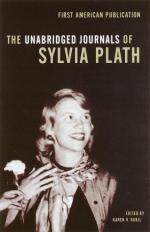|
This section contains 6,394 words (approx. 22 pages at 300 words per page) |

|
SOURCE: Bawer, Bruce. “Sylvia Plath and the Poetry of Confession.” The New Criterion 9, no. 6 (February, 1991): 18-27.
In the following essay, Bawer contends that Plath's extreme popularity as a confessional poet in the 1960s can be attributed more to her reputation as an oppressed and victimized existentialist than to the literary merit of her works.
Back when America was careening from the Eisenhower era—the “tranquillized Fifties,” as Robert Lowell called them—toward the Age of Aquarius, American poetry was undergoing a dramatic shift as well. A period of highly controlled, formal, and impersonal poetry, dominated by the likes of Richard Wilbur and Anthony Hecht, gave way with surprising rapidity to one of unrestrained, exceedingly personal free verse, often about extreme emotional states, by such poets as John Berryman, Anne Sexton, and W. D. Snodgrass. So revolutionary did these effusions seem at the time that the critic M. L...
|
This section contains 6,394 words (approx. 22 pages at 300 words per page) |

|


